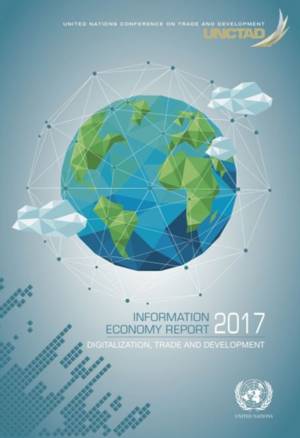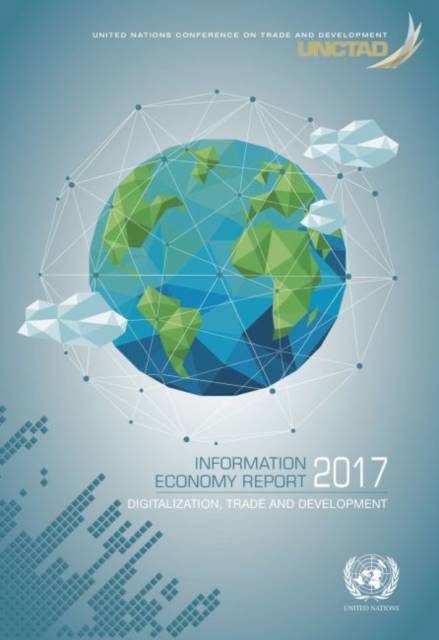
- Afhalen na 1 uur in een winkel met voorraad
- Gratis thuislevering in België vanaf € 30
- Ruim aanbod met 7 miljoen producten
- Afhalen na 1 uur in een winkel met voorraad
- Gratis thuislevering in België vanaf € 30
- Ruim aanbod met 7 miljoen producten
Zoeken
Information Economy Report
2017: Digitalization, Trade and Development
United Nations Conference on Trade and Development
€ 87,45
+ 174 punten
Uitvoering
Omschrijving
The Information Economy Report 2017 analyzes the evolving digital economy and its implications for trade and development. While these are still early days of the digital economy, it is already clear that it will have globally transformative impacts on the way we live, work and develop our economies. As the world strives to implement the 2030 Agenda for Sustainable Development, harnessing the power of information and communications technologies (ICTs) is essential. Large parts of the developing world remain disconnected from the Internet, and many people lack access to high-speed broadband connectivity. Policymaking at the national and international levels needs to mitigate the risk that digitalization could widen existing divides and create new gaps. Since increased reliance on digital technologies, such as cloud computing, three-dimensional printing, big data and "the Internet of things", it is essential to start assessing opportunities and pitfalls alike, and to prepare for what is coming. The analysis contained in the report contributes to this process and proposes ways in which the international community can reduce inequality, enable the benefits of digitalization to reach all people and ensure that no one is left behind by the evolving digital economy.
Specificaties
Betrokkenen
- Auteur(s):
- Uitgeverij:
Inhoud
- Aantal bladzijden:
- 128
- Taal:
- Engels
- Reeks:
Eigenschappen
- Productcode (EAN):
- 9789211129205
- Verschijningsdatum:
- 6/02/2018
- Uitvoering:
- Paperback
- Formaat:
- Trade paperback (VS)
- Afmetingen:
- 213 mm x 298 mm
- Gewicht:
- 335 g

Alleen bij Standaard Boekhandel
+ 174 punten op je klantenkaart van Standaard Boekhandel
Beoordelingen
We publiceren alleen reviews die voldoen aan de voorwaarden voor reviews. Bekijk onze voorwaarden voor reviews.











